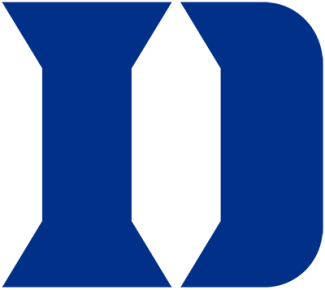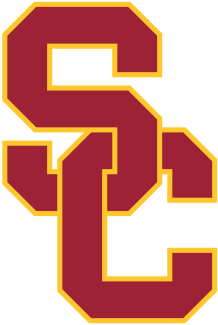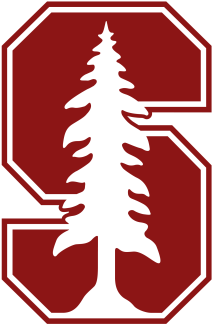The common culprit? The Limestone Saints, who won national titles in 2014, 2015 and 2017 and took down Tampa in five different NCAA tournaments — the last of which came in double overtime in the 2019 NCAA quarterfinals.
In addition, Tampa fell to Lenoir-Rhyne in last year’s NCAA quarterfinals — in what would become Whipple’s last game in charge. He retired from collegiate coaching after 10 seasons, leaving an opening in one of the most promising landing spots in Division II lacrosse.
Just days after the news broke about Whipple’s departure, Clarke spoke to Limestone Athletic Director Michael Cerino about potentially pursuing the job at Tampa. The coach that had dramatically ended the Spartans’ season on several occasions was interested in taking the helm.
Clarke had won three national championships with Limestone, and within weeks of the opening, he was hired to lead Tampa to its first title in school history.
“There was no, ‘I have to get out of here.’ I was in a really good place,” Clarke said. “I was really happy and loved the team and program. But I also knew, even 11 years ago when Tampa announced it was starting a new lacrosse program, there was a collective sigh in Division II like, ‘Oh boy. That place looks different than the rest of us.’”
By late summer of 2021, players within the Tampa men’s lacrosse program already had a good idea of the kind of coaching for which they’d be playing. Clarke set out to establish a culture of accountability and discipline, splitting the team up into platoons and having them read the book “Chop Wood Carry Water: How to Fall in Love with the Process of Becoming Great.”
Late in the winter, Clarke and his staff enlisted a company called “The Program,” which came to Tampa to put his players through a series of military-level team-building exercises, where leaders like Colin White emerged.
“Right after that, you could tell there was something different about the team,” White said. “We were close before, but we had just gone through two days of this military training stuff — getting up really early, working late at night. Going through that together gave us a great stepping stone to continue that throughout the season.”
It’s also where the members of Tampa men’s lacrosse worked with a 6-by-6 wooden log, carrying it in unison and transferring it from person to person. At the end of the week, everyone signed the log and decided that they’d carry it with them to every game (except one trip to Baltimore midseason).
The log went with Tampa as it took down six straight ranked opponents in February and March, including a double-overtime thriller with Florida Tech on March 12. Clarke knew his team had potential, but it wasn’t until April — well into the undefeated season — that he saw his team reach a new level.
On April 28, Tampa beat that same Florida Tech team for the third time, but by six goals this time around. Much of that ascension was due to a Spartans’ defense led by USILA Player of the Year Matt Beddow and All-American goalie Blake Ulmer.
“Defensively, one guy would move and the other five would react without even thinking,” Clarke said. “At our defensive end, we really started to buckle down. We were so deep down there because of how well they were coached. We really started to have something going in late April.”
Tampa tore through the Sunshine State Conference tournament, then topped Lenoir-Rhyne in the NCAA quarterfinals, setting up an NCAA semifinal matchup with Limestone. It had to be Limestone — Clarke’s former team and Tampa’s top nemesis — standing between the Spartans and a trip to their first NCAA title game.
“I really, really, really, really wanted to win,” Clarke joked. “The pressure for me was how much I wanted this team to experience Championship Weekend. I felt more pressure than I ever had because of how well I knew Limestone.”
White and the veterans of the Tampa men’s lacrosse not only wanted to win for their coach, but for those like Kew who had fallen at the hands of Limestone in years past.
“We knew the past records of Tampa vs. Limestone,” White said. “We wanted to be the one, the team that erases that and flips the switch.”
White scored the first goal and the Spartans jumped out to an 11-1 lead by halftime. The win was a formality by the third quarter when Tampa led by 15 goals. The demon had been exercised and Clarke led the Spartans past his former team and into the NCAA title game against Mercy.
On the Sunday before Memorial Day, Beddow and the Tampa defense held the Mavericks into check en route to a relatively comfortable championship game victory. It was the culmination of an unbeaten season, a historic first campaign for Clarke and a long, long journey for the log that helped shape this program.
White and his captains had to figure out how to transport the log to Hartford via United Airlines — a logistical challenge (pun not intended).
“We show up at baggage claim with 60 people and Connor Larkin walks up to the luggage lady and puts down this enormous piece of wood with writing all over it,” Clarke said. “She looked at him, and he looked at her and said, ‘Oh, it’s going with us.’”
Sitting just yards from Clarke, still shaking his head, was the log, on the Tampa sideline ready to be carried as part of a national title celebration.


























































